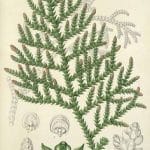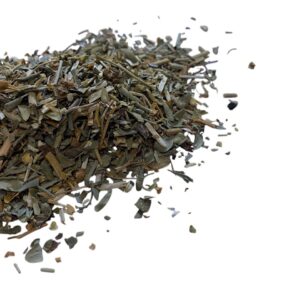Asunaro Essential Oil -Thujopsis dolabrata
£18.50
BOTANICAL NAME: Thujopsis dolobrata
OTHERWISE KNOWN AS: False arborvitae or just called by its genus name Thujopsis.
SCENT: The odour of the oil is ‘woody,’ slightly reminiscent of Cedarwood oil; similar to that of Thuja plicata.
STRENGTH OF AROMA: Strong
PLANT PART USED: Bark
EXTRACTION METHOD: Steam distillation
ORIGIN: Japan
COLOUR: Yellow
CONSISTENCY: Light
NOTE: Top
CAUTIONS: Use well diluted and as with all essential oils, they should not be used during pregnancy and never ingested (taken internally) and should be kept away from children and pets. No medicinal claims are made for this product and the notes above are provided for guidance purposes only. Essential Oils are powerful plant extracts and should be used with extreme caution. You should seek the advice of a qualified practitioner should you be in any doubt.
Asunaro Wood is a conifer in the cypress family (cupressaceae) the sole member of the genus Thujopsis. It is endemic to Japan. Asunaro is the Japanese name for this species, which has never acquired a widely used or easily recognised English name, though it is occasionally known as False arborvitae or just called by its genus name Thujopsis. (pronounced Thu-Yopsis) It is also known as Hinoki but I am not sure why, there are lots of stories. Hinoki is a Japanese Cypress but it is entirely different tree.
Appearance of Asunaro:-
It is a very dense and slow-growing evergreen conifer with an overall conical shape that is mostly native to the moist forested areas in central Japan. Mature trees typically reach around 30 metres in height and somewhat taller in their native habitat and tend to grow in groves rather than singly. It is considered a valuable ornamental tree in Japan and is sometimes known locally as Asunaro It is not at all a drought tolerant tree but has received the Royal Horticultural Society’s Award of Merit as it is grown as an ornamental wherever conditions suit it in other countries around the world now.
It resembles Thuja, thus its name of Thujopsis ( Opsis meaning resembling)
The wood from the tree is considered valuable too as it is durable and very highly scented. The tree is often planted in cultivation around temple complexes as well as Japanese formal gardens.
| Size (ml) | 100ml, 10ml, 200ml, 25ml, 2ml, 50ml, 5ml, sampler |
|---|





